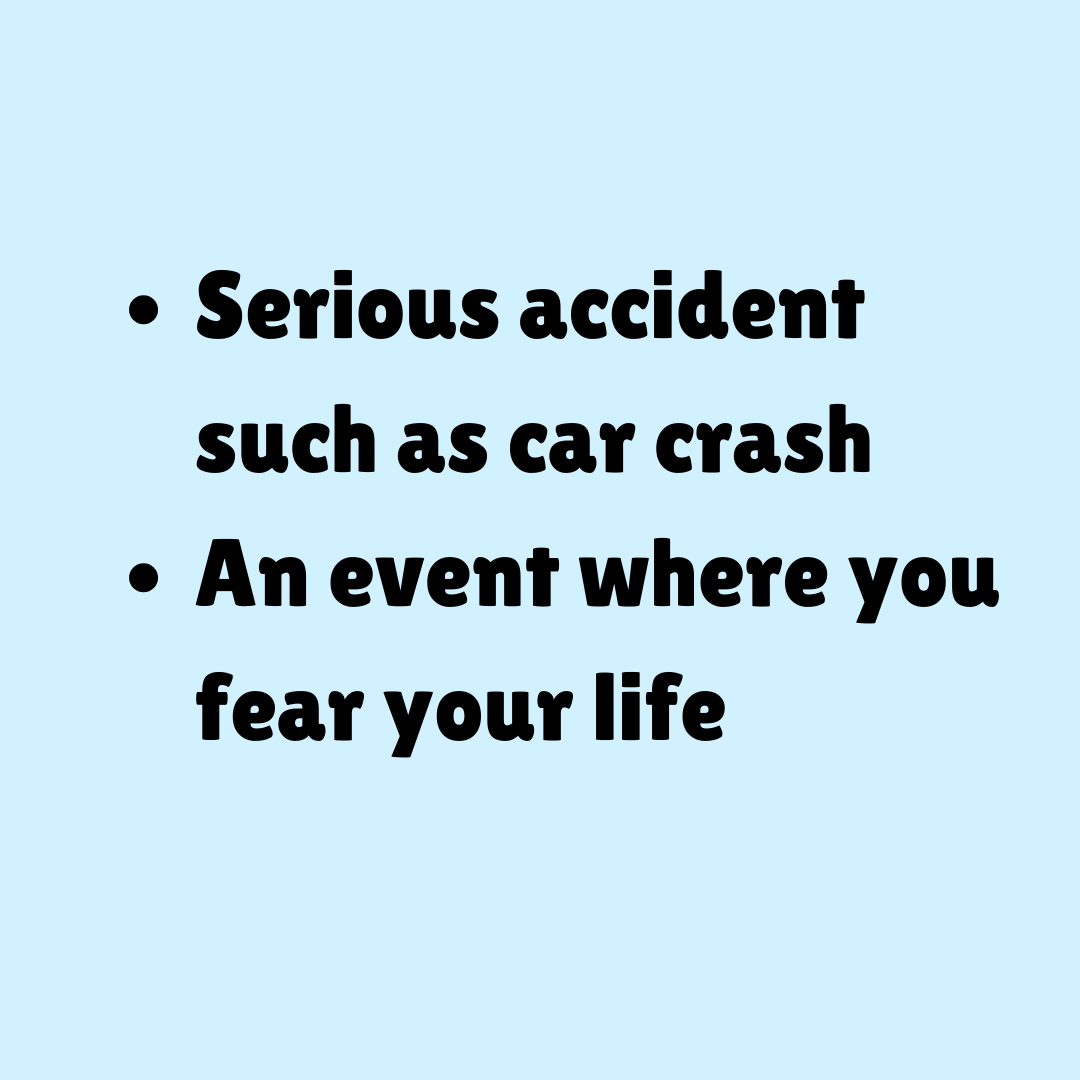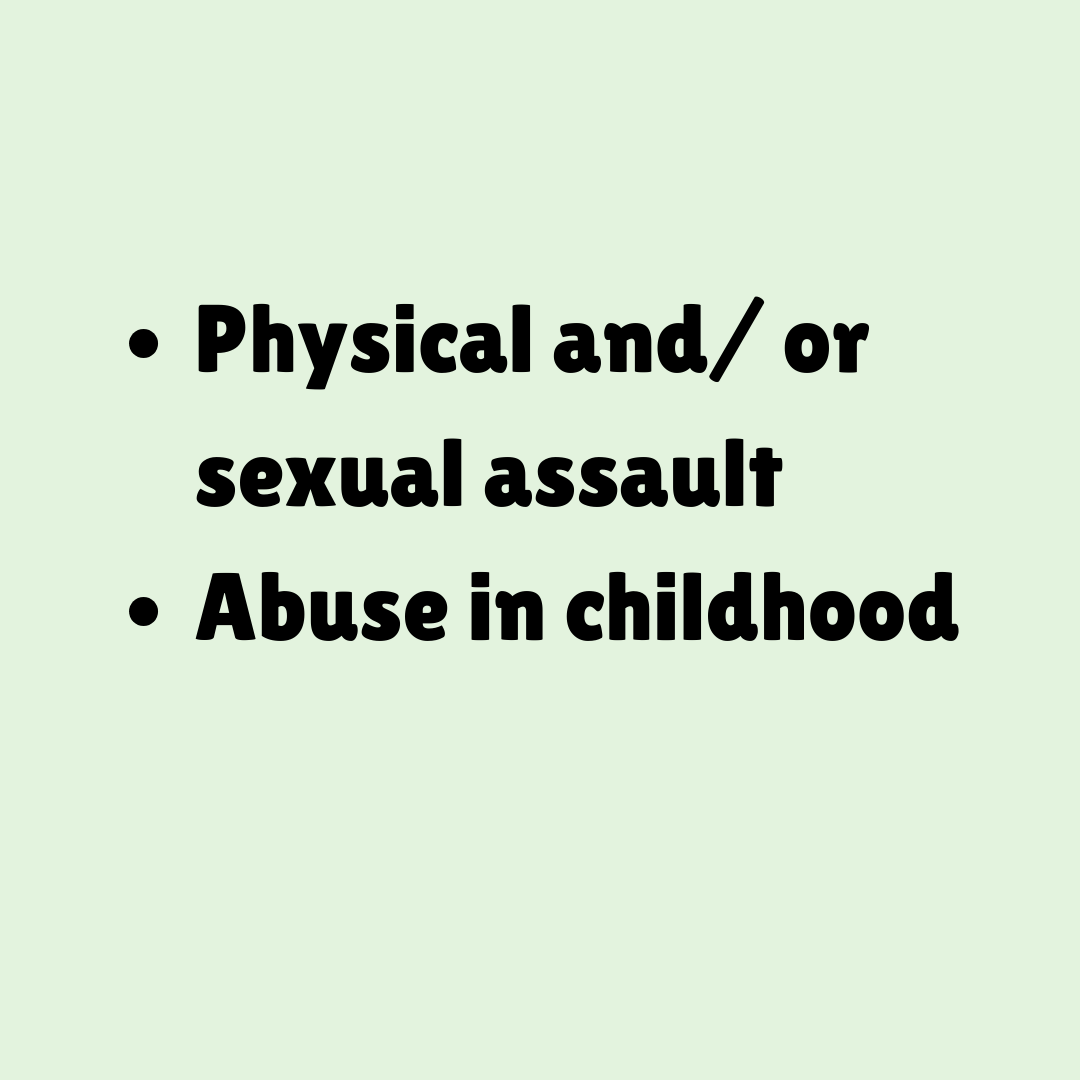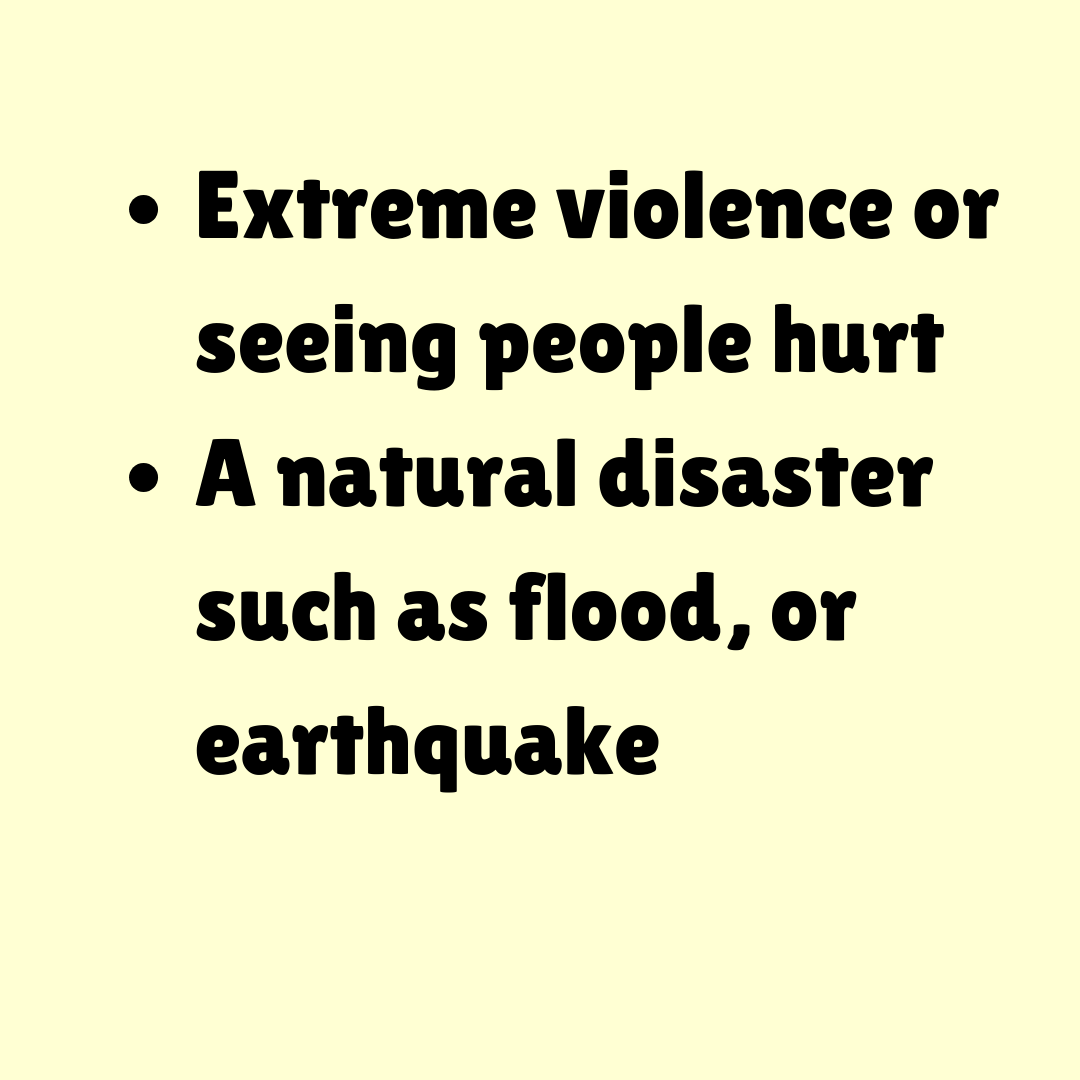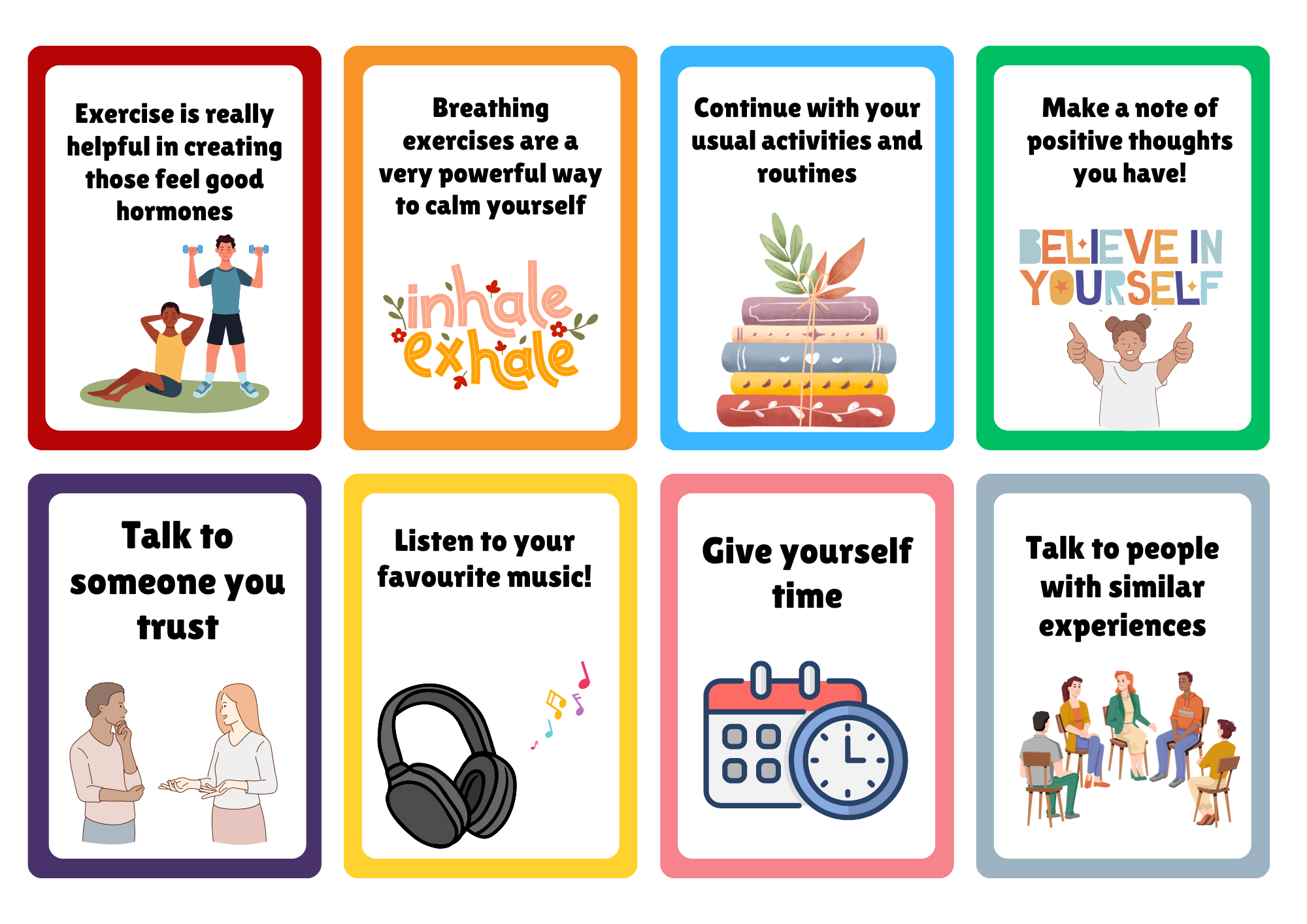What is trauma?
If you are involved or witness a traumatic event, it is common to feel distressed, upset or confused afterwards. These feelings may not emerge straight away. These feelings become a problem, and require you to seek help, when they stop you leading your life as you want to.
Not everyone who experiences a traumatic event has difficulties, but it is important to remember to seek help if you do.
Types of trauma



It is important to remember that experiencing trauma is not your fault. Neither are the emotions you may feel afterwards. You can help change these feelings through coping strategies, self-care and treatment.
Reactions after a Traumatic Event
Every child or young person’s response after a traumatic event is different. These are the common responses. For most children and young people they feel better with time. If you are worried that a child is very distressed or continues to be distressed after a month or more has passed, seek further help.
- Vivid flashbacks
- Intrusive thoughts and images
- Nightmares
- Distress at reminders of the trauma
- Pain
- Sweating
- Nausea
- Shaking
- Easily upset or angry
- Extreme alertness
- Anxiety
- Lack of concentration
- Easily startled
- Keeping busy
- Avoiding situations that remind you of the trauma
- Feeling numb
- Unable to express affection
- Using drugs / alcohol
Remember that experiencing trauma is not your fault. Neither are the emotions you may feel afterwards.
Coping strategies

It is also important to look after yourself by practising self-care. This includes:
- Eat healthily and take regular exercise
- Have a structured daily routine
- Find supportive relationships
- Recognise when you are becoming unwell
Advice to parents after children have experienced a frightening event:
- Try to make things as normal as possible by sticking to normal routines as much as possible.
- Help children to understand what has happened by giving a truthful explanation that makes sense of the main facts.
- Be available to talk to children and young people when they are ready.
- Answer questions truthfully.
- If someone has died, explain what it means. Help them to understand that death is permanent, that it happens to everyone and has a cause.
- Look after yourself as well, talk to another adult or seek support through your GP.
Treatment
- Trauma-Focused Cognitive Behaviour Therapy helps you understand the links between your thoughts, feelings and behaviour. It might help you stop avoiding things, and help you cope with other symptoms.
- Eye Movement Desensitisation and Reprocessing (EMDR) is a type of therapy that can help you to process and recover from a traumatic event.
- Child and Adolescent Psychotherapy and Art Psychotherapy are also forms of therapy that may be offered to support you.
- Stress Management helps you develop skills such as relaxation, assertiveness and positive self-talk. Medication can also help; speak to your GP if you think this could help you.
Self-referral support available through Mindworks Surrey for trauma
STARS (Sexual Trauma Assessment, Recovery and Support)
Help us improve our website
Please take a moment to share your thoughts and help us enhance our website by completing our short survey here.